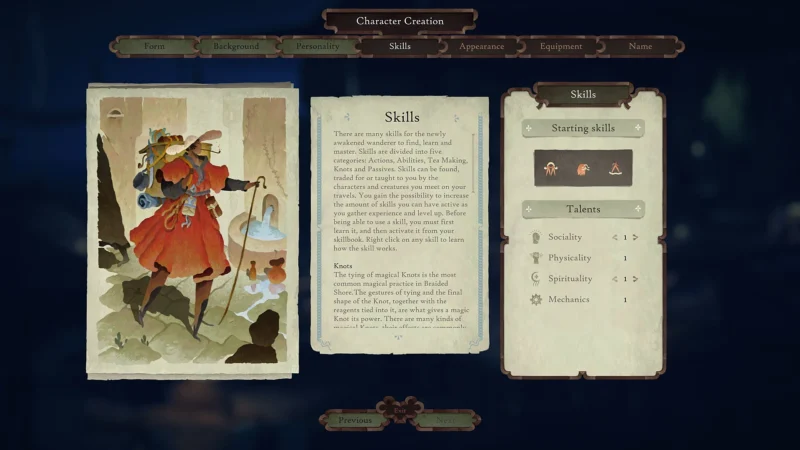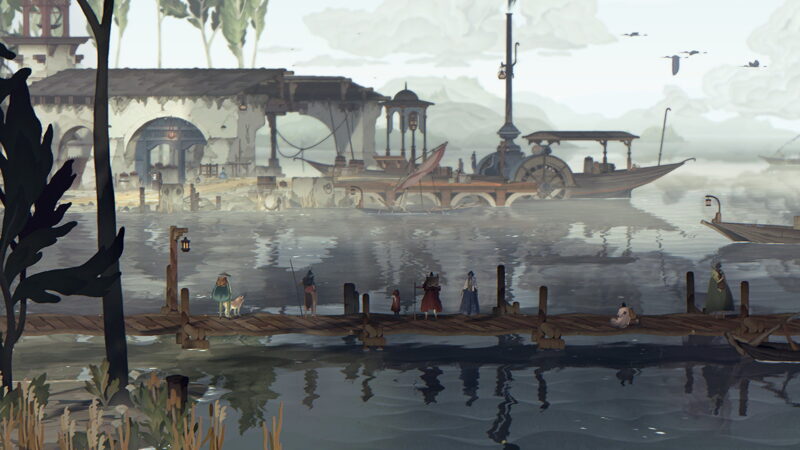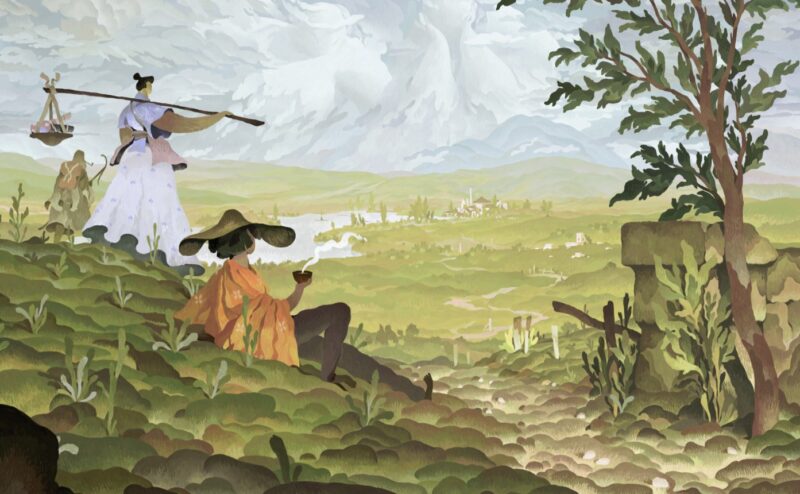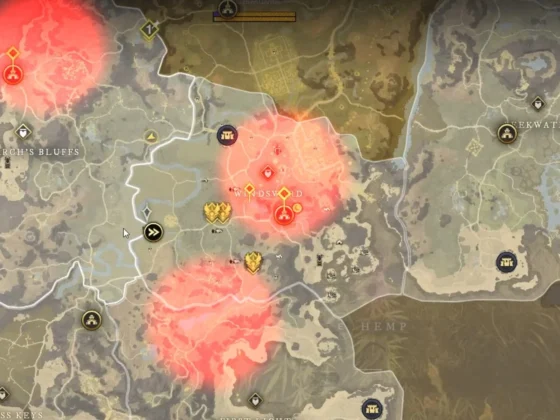The Book of Travels is a narrative-driven, open world RPG that takes players on a journey through the history of humanity. Players can choose from three playable characters and explore the world as they see fit, with no linear story to follow.
The book of travels forms is a book that was written by Robert Louis Stevenson. It tells the story of an Englishman who goes to live in Italy with his family.
I awoke drenched in a sheep pasture, the consequence of decisions I couldn’t comprehend at the time. Because several of the more inquisitive wooly animals nuzzled my face and made sheep noises, I knew it was a sheep pasture.
Otherwise, it was too dark to see my surrounds or even whether I was safe, despite the fact that my wanderer’s instinct — plus a smidgeon of common sense — informed me that assassins and robbers don’t typically lurk among farm animals in the middle of nowhere.
Fortunately, a nice shepherd came up to me and directed me in the correct way, so I set off on yet another adventure. Or, to put it another way, Bahvet the wanderer set out on one of the many adventures described in Might and Delight’s Book of Travels.
I got the opportunity to play the TMORPG (tiny multiplayer online RPG) ahead of its Steam Early Access debut, and I can confidently state that Book of Travels is unlike anything I’ve ever encountered in the best of ways.
EA Review of Book of Travels: A Road Worth Traveling

The beginning of your time in Braided Shore is similar to that of many other deep RPGs. The game master assigns you the job of choosing a character, an origin narrative (which you may write yourself), and some distinguishing traits. I was expecting something along the lines of Divinity: Original Sin 2, with an intriguing background that affects your early hours, a few abilities that sometimes impact your dialogues, and not much more.
I was completely incorrect.
I chose the classic wanderer, a seasoned traveler who is constantly restless and takes pleasure in his ability to assess people’s character. When you wake up wet and ill in a sheep enclosure, it’s both romantic and useless.
Needless to say, I didn’t spend much time there. I started off toward the Crossroads village with nothing but my clothing – nasty clothes, according to the in-game description — in quest of anything or nothing at all.
That wasn’t simply a choice made for the sake of roleplaying. One of the most open-ended experiences I’ve ever experienced is Book of Travels. Finding Crossroads was the logical thing to do, but I could have gone the other way or even started a battle with another traveler (which I did anyway, and lost).
BoT gradually taught me enough about the world to get me started, including short explanations of Knots — a kind of magic — the all-important tea ceremonies and teahouses, and how to acquire what I needed through trading.
Because time moves regularly in Braided Shore, the lands I traveled across were dark and deserted. When the morning rose, people continued their journeys, but I was happy to be alone, with just the short glimpses of starlight flickering through the woods and the glow of torches indicating that I was on the correct track.
The few people I did meet were always ready for a quick conversation, which provided me with a valuable experience boost that I could later use to learning new skills. I could go on and on about how much I like Book of Travels’ approach to skills and experiences. It’s one of the most natural and intuitive controls I’ve ever seen in a game.
How many abilities you can hold at any one moment is determined by your memory capacity. Using a talent helps it improve, but if you don’t use it frequently enough, it will deteriorate and ultimately be replaced. It’s indicative of Book of Travels’ sensible approach to design in general since experience may come from anything, whether it’s performing activities or just chatting to people.

You may team up with others, just like in any multiplayer RPG, and you’ll sometimes need an additional hand to complete specific chores. Because it recently launched in Early Access on October 11, the amount of other players I met was understandably small, but I was happy to find that it had little impact on what my unfortunate wanderer might achieve if he so desired.
Even if your friends are nowhere to be found, there’s always another path to follow or a job to do.
The procedure of getting ready for the party is also fast and natural. At the train station, I met a fellow traveler called Kirk, with whom I exchanged pleasant emotes before agreeing to join forces. But I had to catch a boat, and although our friendship didn’t last long, I think Bahvet liked it that way.
Some people may be turned off by the open-ended approach, and you may often find yourself at a loss, particularly in some of the vast, empty sections. It is, nevertheless, worthwhile. There are few things in gaming that compare to watching your decisions pay off in unexpected ways or picking up on a subtle hint about what you might do next and stumbling upon a new adventure.
I’ve never been as emotionally involved in a roleplaying game as I do in Book of Travels. Bahvet’s trip seems like a real adventure, and I’m learning as much as he is about the world and what I can accomplish in it. I’m excited to see what major events await me in the future, but I’m also happy with the many little moments that have defined my time so far.
These moments characterize the trip more than any big setpiece could — losing to a duelist on the train, missing my ferry and instead getting lost in discussion with the dockhands, being passed over for navy recruiting because I obviously had the appearance of a landlubber. I’ve just scratched the surface, but Book of Travels has already left an indelible impression on me.
The greatest aspect is that it seems more like my experience than most comparable RPGs do. Others who chose other talents, particularly those who emphasized the magical side of the skill tree, had quite different first few hours. The environment is littered with hints of your decisions’ consequences, from monuments you don’t know how to engage with to technology that’s far out of your league until later.
So far, Book of Travels has been a really wonderful experience. It’s a modest voice providing something new and important in a world filled with huge games screaming their vast content at you, an experience that’s equal parts traveling simulator and laid-back RPG.
It’s unlike anything else. I’m not sure what awaits Bahvet or where his path will lead him, but that’s alright. We’ll get there eventually, whatever it is.
[Note: The copy of Book of Travels utilized for this Early Access review was supplied by Might and Delight.]



